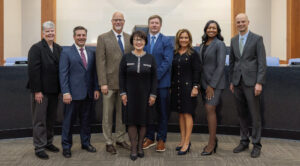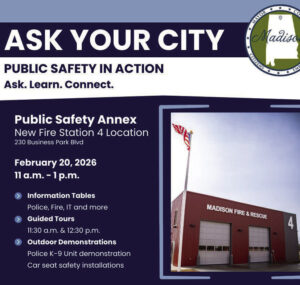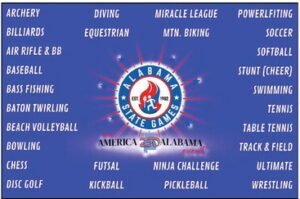Board stands for disability issues
The board was established "to strengthen public understanding of the needs of persons with disabilities and to ensure that all citizens with disabilities have equal access to the city of Madison's resources and opportunities."
Madison’s Disability Advocacy Board has made leaps and bounds in the community since its establishment in 2009.
The board advises the mayor, city council and citizens about issues concerning people with disabilities.
“We were seeing more and more citizens with disabilities in Madison and the services weren’t here,” said Claudia Rice, board chairperson. “We needed to do something before we had a huge population without something to offer them. A lot of the people coming in here have family members with disabilities.”
Both of Rice’s children are on the autism spectrum. She went to city council meetings in 2008, and expressed the need for a board that would cater to people with disabilities ranging from physical to mental impairments. Rice said Mayor Paul Finley immediately jumped on the issue and created the advocacy board.
The board recently oversaw the completion of Hand-in-Hand, the new special needs playground at Palmer Park. They are also responsible for the construction of a unisex bathroom at Dublin Park.
“We wanted a family style restroom where people of different genders could help out their special needs family members in the restroom,” she said. “An elderly woman’s husband can now assist her if she needs it.”
The board conducted a community assessment shortly after its creation. Rice said the assessment showed that the major needs for special needs people were accessibility, day services, emergency services, employment, housing and recreation.
“People have issues getting in and out of certain buildings, and we are going to create a committee who will look at accessibility issues here,” Rice said.
The board was also granted a seat on the recreational advisory board, so they could make recommendations as to what needs to be done with the city’s recreational facilities to make them more disability friendly.
One of the biggest projects the board is undertaking is making and passing out emergency preparedness kits. The kits include brochures from FEMA, a paper of special health needs and a map of the town with emergency exit routes. The kits are all prepared by people with special needs. The kits are to be placed in the refrigerator freezer so first responders would know where to look in case of an emergency.
“If I were to collapse, my son, who has autism, could call 911 and they would immediately know to go to my freezer and see my information,” she said. “And if there is a tornado, it is more likely not to be blown away.”
The board has prepared more than 1,000 kits for the public.
Rice said the board is also in talks with responders in Madison County about a 911 special needs registry, where people’s health needs would be put in a database where it could be accessed in case of an emergency.
“People with disabilities need a voice, and a collective voice is usually stronger than a single one,” Rice said. “We know we can’t solve everyone’s problems, but if there are holes we could fill, we want and try to do that.”
For more information on the advisory board, visit the website at Mcdab.org.
















